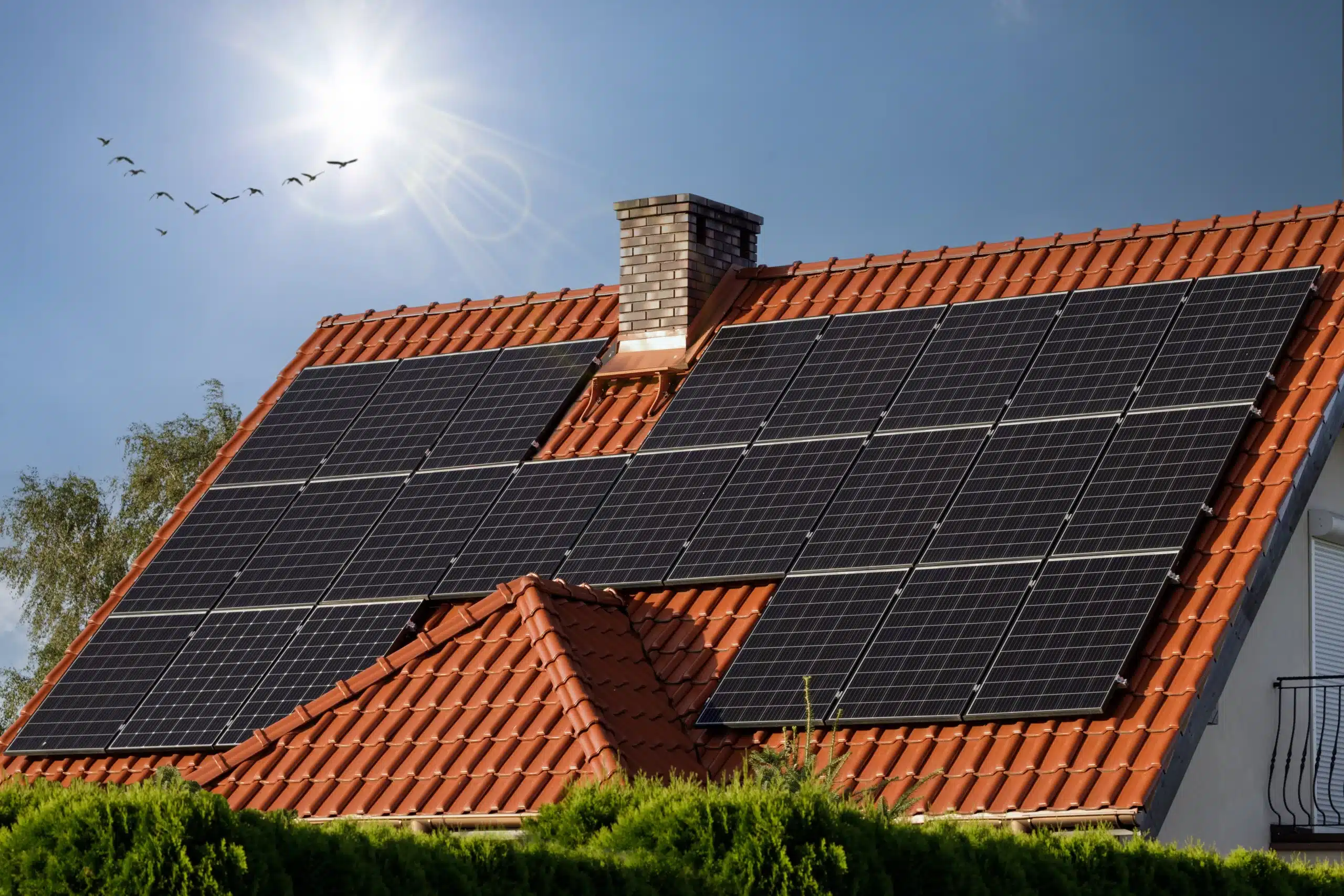
- How much do solar panels cost in the UK?
- How do solar panels work with your electric bill?
- Factors influencing payback time
- Average payback time for a UK solar panel investment
- Impact of battery storage on payback time
- The additional and environmental benefits of a solar panel investment
- Is it time to make a solar panel investment?
The UK is embracing solar energy at an accelerating pace, with over 1.5 million installations completed by 2024. The average UK household saw its electricity bill increase between 2021 and 2023, with further hikes projected due to geopolitical tensions and inflation. Making a solar panel investment offers a sustainable way to combat these rising costs while reducing carbon footprints.
However, many potential adopters have one key concern: are solar panels worth the investment and how long will they take to pay themselves off? This blog will explore how the solar panel return on investment in terms of how it can lower energy bills, along with government incentives like the Smart Export Guarantee (SEG) or private grants, along with the increase it can have on home value.
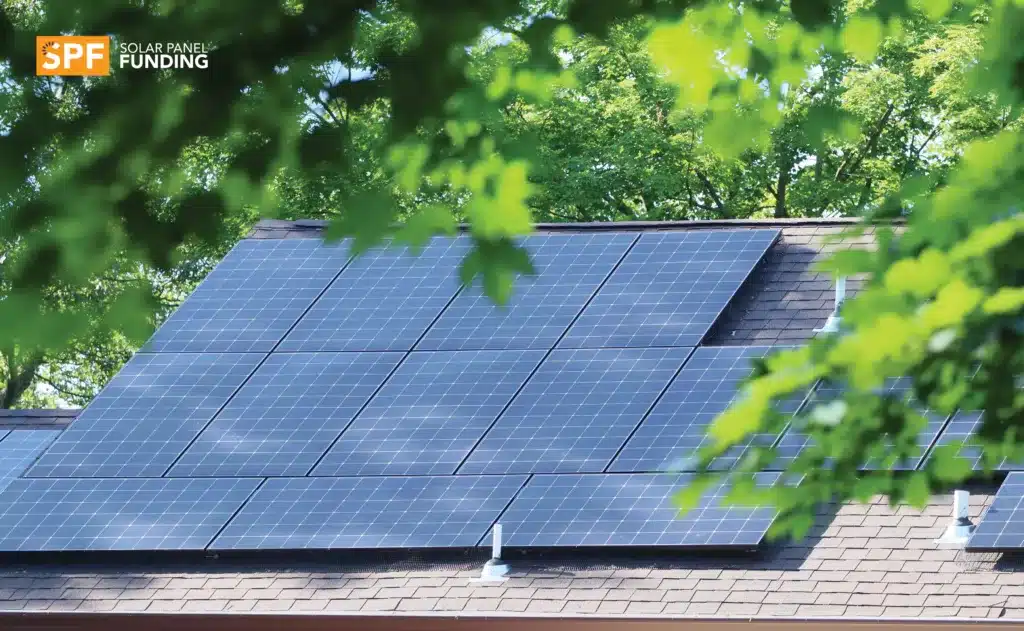
How much do solar panels cost in the UK?
The cost of fitting solar panels is fairly accessible, with prices varying based on system size, technology and optional features like battery storage.
Average costs by system size:
- Small residential systems (3–5 kW): £3,000–£7,000.
- Medium-sized systems (5–6 kW): £5,000–£8,000.
- Large systems for businesses (10 kW or more): £15,000–£25,000.
These costs tend to vary based on a variety of criteria, such as:
System size. Larger systems tend to cost more.
Panel quality. Premium panels with higher efficiency (e.g., >20%) cost more.
Additional features. Adding features like battery capacity and monitoring systems will increase your solar panel installation cost.
Location. Installations in rural areas might be higher due to a lack of competition.
Financing options
If deterred by how much solar panels cost upfront, there are various financing schemes, including:
Green loans. Some financial institutions will offer low-interest loans tailored for eco-friendly home improvements.
Pay-as-you-save. Some installers and solar panel companies allow users to pay for the system in instalments, with costs offset by energy bill savings.
Grants and incentives. The SEG allows homeowners to sell surplus energy back to the grid, generating passive income, while there are options for full or partial funding for a solar panel investment.

How do solar panels work with your electric bill?
A solar panel investment will reduce your reliance on electricity from the grid, leading to lower energy bills.
Energy generation and usage
Solar panels generate electricity from sunlight, which powers your home or business. The more your panels produce, the less electricity you need to purchase. The amount you save depends on how much energy you consume, with the average UK electricity price around 24.5p per kWh.
Smart Export Guarantee (SEG)
When exporting excess energy to the grid, you earn payments under the Smart Export Guarantee. Rates vary by supplier, typically ranging from 2p to 15p per kWh, providing an additional financial benefit.
Saving energy
Systems with batteries allow you to store surplus energy and use it later, reducing your need for costly peak-time electricity from the grid.
By generating power and potentially earning SEG payments, a solar panel investment can lower your monthly electricity costs while contributing to energy independence.
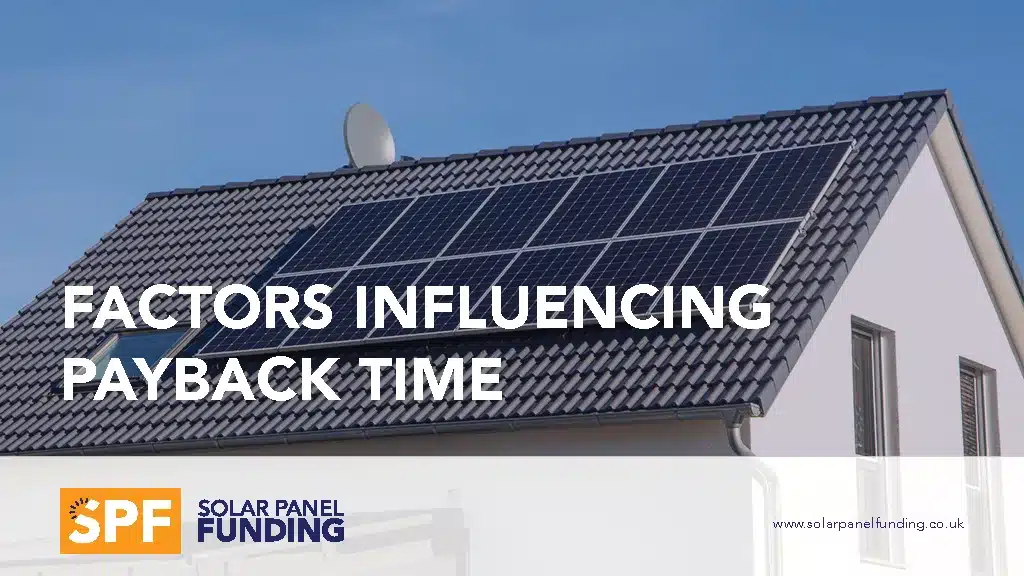
Factors influencing payback time
So we know they can save money, but are solar panels a good investment in terms of payback period? This comes down to a range of factors.
Electricity costs and savings
The more expensive electricity becomes, the quicker solar panels pay for themselves. With the rising prices in the UK, a 4 kW system can save the average household around £608 annually by offsetting energy use. Savings are even greater for high-consumption households.
System efficiency
The efficiency of solar panels will determine how much sunlight is converted into usable electricity. More expensive models will have cost more upfront but pay for themselves faster.
Location and sunlight exposure
Geographic location plays a critical role in the effectiveness of a solar panel investment – sunlight doesn’t hit the UK equally. Homes in the south of England receive more sunlight than those in northern Scotland, meaning faster generation and a quicker ROI.
Installation costs
Comparing quotes from installers can lower costs, further reducing the payback period. Trusted platforms like the Microgeneration Certification Scheme (MCS) help identify accredited installers, ensuring quality at competitive prices.
Amount of maintenance
An average maintenance session (cleaning and repairs) will cost around £100-£200, so the more maintenance you panels need, the longer it will take to pay your investment back. It’s in your best interests to look after them as well as you can!
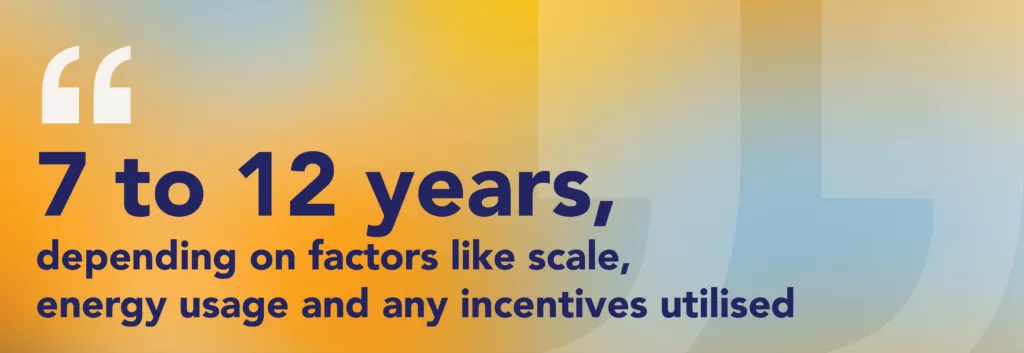
Average payback time for a UK solar panel investment
The payback period for solar panels in the UK generally falls somewhere between 9 and 15 years for residential systems. For commercial installations, which are typically larger and more expensive, this period can range from 7 to 12 years, depending on factors like scale, energy usage and any incentives utilised.
A hypothetical scenario might look something like this:
- A homeowner gets solar panels, costing £7,000 for installation
- They save £500 in energy bills every year
- They also sell £100 of excess energy
- This creates a total financial benefit of £600
- Within 11.6 years, the solar panel investment will have paid for itself
A similar process takes place for businesses, with energy savings and SEG contributions amplified due to higher consumption, often leading to faster returns on investment.
Check out our saving calculator to see how much a specific installation could save you!
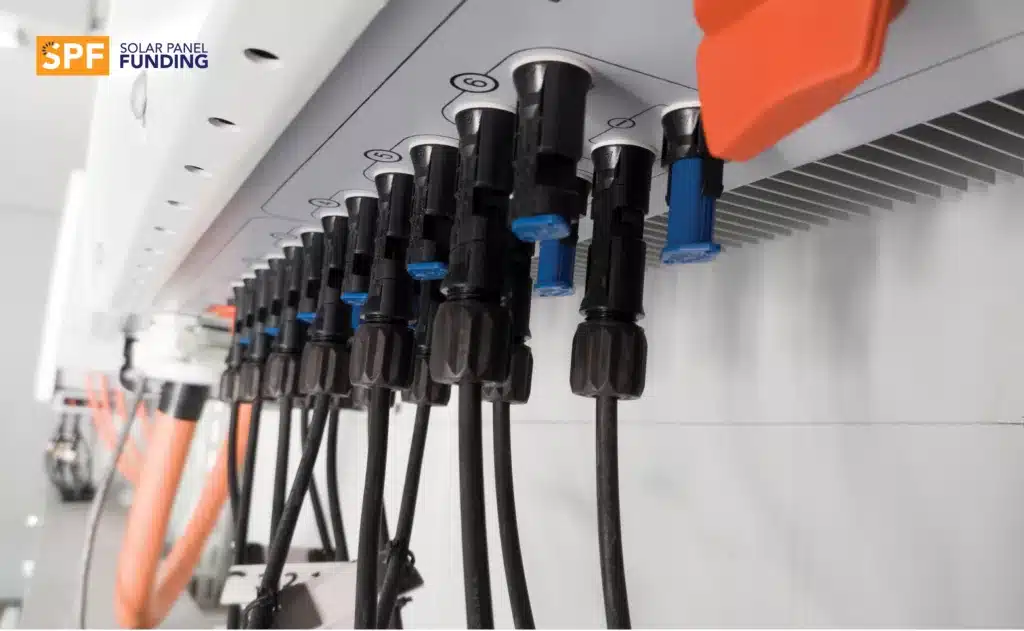
Impact of battery storage on payback time
Battery storage systems, as alluded to above, are becoming increasingly popular as they enable homeowners to store unused energy for later, such as during the evening or cloudy days. While this maximizes energy independence and can increase the amount of SEG income, it does also extends the payback period due to the additional upfront costs.
A typical 5 kWh battery storage system costs between £4,000 and £6,000, which can add 3–5 years to the payback time. Most batteries last around 10-15 years, generally aligning with the average payback time for an investment.

The additional and environmental benefits of a solar panel investment
The advantages of solar panels and energy-saving initiatives extend beyond financial returns. Each installation reduces carbon emissions, helping combat climate change, with a typical 4 kW residential solar system can save over 1.5 tons of CO₂ annually, equivalent to planting over 70 trees.
The benefits beyond cost savings include:
- Contribution to Net Zero goals
- Improved air quality in local areas
- Increased property value
For many environmentally conscious individuals, the satisfaction of supporting the environment can outweigh financial costs alone, making solar panels a dual investment in the planet and their future.
Maximising your solar panel investment
Investing in solar panels is a significant financial and environmental decision, so it’s important to be considerate of your value received when doing so.
Choose the right Installer
Make sure to compare quotes and reviews from multiple installers – this will ensure you get the right price and choose a company with high standards.
Don’t sleep on maintenance
While solar power maintenance isn’t that regular, occasional check-ups and cleanings for dust, debris and bird droppings will help to ensure efficiency and therefore savings.
Use grants and incentives
Programs like the SEG and other grants are a great way to generate extra income and save on installations, while businesses can also claim tax relief on solar installations.
Monitor performance
Investing in monitoring tools will ensure that you accurately track energy generation and identify issues early. Many inverters come with tools that allow homeowners to monitor performance in real-time.
By taking these steps, you can extend the lifespan of your system, maximize savings, and reduce the overall payback time.

Is it time to make a solar panel investment?
Solar panels provide UK homeowners and businesses a unique opportunity to reduce energy costs, minimize environmental impact and gain energy independence all in one. While the initial investment may seem substantial to many, typical payback periods range from 9 to 15 years for residential systems and can be even shorter for businesses with higher energy needs.
Key factors such as access to grants/incentives, regional sunlight variations and battery storage influence overall savings and timelines, among other factors. It’s important to be mindful of all of these factors before you invest. Beyond the financial benefits, solar installations contribute to a greener, more sustainable future, aligning with the UK’s ambitious net-zero goals.
If you’re considering solar panels, but are unsure of how you’ll pay the initial cost, check out what we’re doing at Solar Panel Funding. We’re the only non-government solar panel grant provider in the UK, supporting households all over the country to achieve their energy independence goals!

